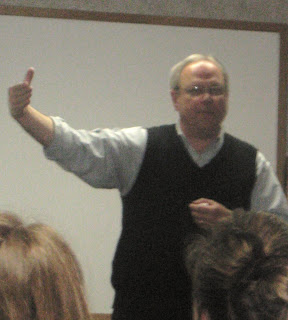
In
Small is Beautiful: Economics as If People Mattered, E.F.
Schumacher considers unemployment.
Schumacher describes unemployment as "the non-utilization or gross under-utilization of available labor."
Economic Development, according to
Schumacher, "is primarily a question of getting more work done." For an economy to develop, four conditions must be met:
- Motivation
- Know-How
- Capital
- Access to New Markets
Regarding motivation, Schumacher says that "there is little to be said from the outside. If people do not want to better themselves, they are best left alone."
Of know-how, he asks "What is education for?" and talks about the obligation of those with know-how, or education, to act as leaders for the larger community. Schumacher says that this is a view that is "well supported by all the higher teachings of mankind" and quotes St. Luke: "Much will be expected of the man to whom much has been given. More will be asked of him because he was entrusted with more."
Capital is necessary because productive work cannot be done without it--"in the form of equipment and also in working capital."
The last condition is markets, which Schumacher says is a problem for poor economies: "There is a very real problem because poverty means that markets are small and there is very little free purchasing power. All of the purchasing power that exists already, is, as it were, bespoken...if I start a new production in a poor (economy) there can be no local market for my products unless I divert the flow of purchasing power from some other product to mine."
All of the above, he says, "sounds very difficult and in a sense it is very difficult if it is done for the people, instead of by the people... Let's not mesmerise ourselves by the difficulties, but recover the commonsense view that work is the most natural thing in the world."
My question: What does this mean for Economic Development in West Virginia?
Schumacher describes economics as an inexact science--"(Economics) is in fact, or ought to be, something much greater: a branch of wisdom...economic life is still worth living because it is sufficiently unpredictable to be interesting. The future cannot be forecast, but it can be explored."

 Cary Griffin explaining the concept of Information Interviews to us.
Cary Griffin explaining the concept of Information Interviews to us.







